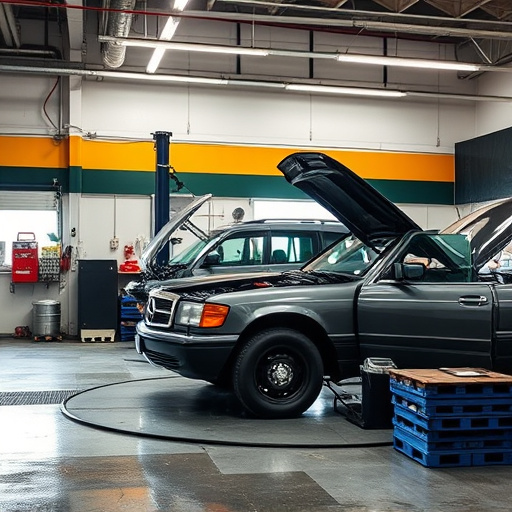Before selecting a repair center, understand your insurance coverage limitations and terms. Prioritize quality, reliability, and licensing. Check online reviews, specializations, and insurance claim processes. Inquire about experience, work process, warranties, part choices, and customer feedback to make an informed decision for recommended insurance repairs.
Choosing the right repair center can be challenging, especially with numerous options and limited time. Before committing to a recommended repair center, ensure you understand your insurance coverage for repairs and have evaluated key factors. This guide delves into essential questions to ask, empowering you to make an informed decision. From checking credentials and service history to comparing pricing and understanding warranty policies, navigating these steps ensures peace of mind and top-notch repairs for your vehicle.
- Understanding Insurance Coverage for Repairs
- Key Factors to Consider When Choosing Repair Centers
- Questions to Ask Before Committing to a Recommended Repair Center
Understanding Insurance Coverage for Repairs

Before settling on a recommended repair center, it’s crucial to understand your insurance coverage for repairs. Not all policies are created equal; some may specifically exclude certain types of damages or have deductibles that significantly impact your out-of-pocket expenses. Familiarize yourself with your policy’s terms and conditions, especially regarding collision coverage, comprehensive coverage, and any exclusions related to cosmetic repairs like car scratch repair or paintless dent repair at an automotive body shop. Knowing your rights and responsibilities as a policyholder will empower you to make informed decisions when choosing where to take your vehicle for necessary repairs.
Key Factors to Consider When Choosing Repair Centers

When selecting a repair center, especially those recommended by insurance providers, it’s crucial to consider several key factors that ensure quality and reliability in vehicle repair. Firstly, check if the center is licensed and certified by relevant automotive authorities. This guarantees they adhere to industry standards for safety and service. Secondly, verify their reputation through online reviews and feedback from previous customers; a bustling center with positive testimonials often signifies reliable service and fair pricing.
Additionally, inquire about their specialization in specific areas like auto bodywork, tire services, or general vehicle repair. Some centers may excel in one aspect but lag in others. It’s also essential to understand their insurance claim process and whether they have experience handling your particular insurance provider. Efficient communication and a smooth claims process can save you time and hassle, ensuring the best possible experience during what can be a stressful situation.
Questions to Ask Before Committing to a Recommended Repair Center

Before committing to a recommended repair center, there are several crucial questions to ask. Firstly, inquire about their experience in handling insurance claims and the specific types of repairs they specialize in, such as auto dent repair or car dent repair, to ensure they can cater to your needs. It’s also essential to understand their work process, including whether they offer on-site estimates for auto body restoration and how long typical repair jobs take to complete.
Check if the center provides warranties or guarantees on their work, and what these cover. Ask about their policies on using original equipment manufacturer (OEM) parts versus aftermarket parts, as this can impact both cost and quality. Finally, verify their customer reviews and ask for references to gauge their reputation, especially in areas like communication, punctuality, and adherence to budget estimates, particularly for complex repairs like auto body restoration.
When choosing an insurance-recommended repair center, it’s crucial to ask the right questions. Beyond understanding insurance coverage for repairs, consider factors like reputation, certifications, and specialized services. By asking essential queries, you can make an informed decision, ensuring your vehicle receives quality care that aligns with your insurance provider’s standards.













